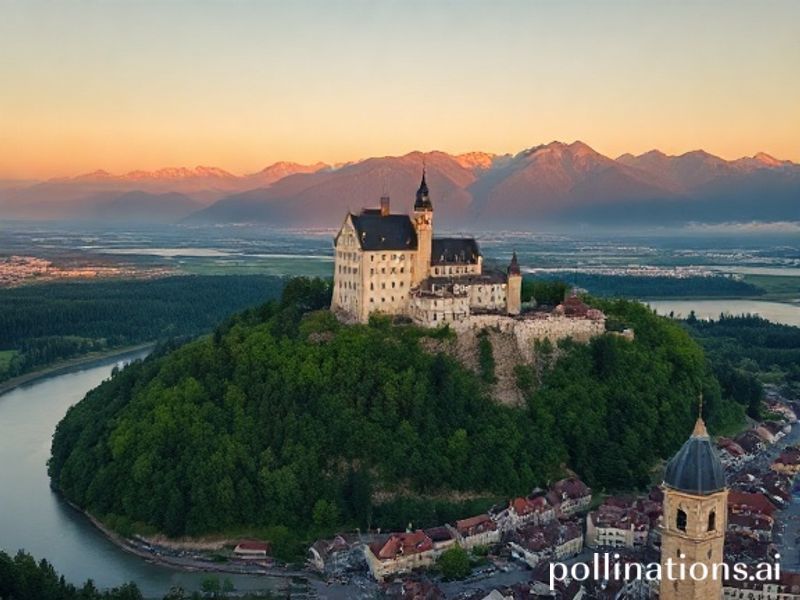Liechtenstein: The Pocket-Sized Principality Secretly Balancing the Planet’s Books
Liechtenstein: The Micro-Monarchy Quietly Running the World’s Off-Balance Sheet
By the time you finish this sentence, Liechtenstein’s 39,000 citizens will have collectively earned another million francs, most of it from accounts whose owners would rather you not know their names. That’s the speed at which the planet’s sixth-smallest sovereign state moves money—fast enough to make Switzerland look like a village credit union, slow enough for the Alps to stay photogenic.
In a year when entire continents can’t balance their budgets, the Principality’s ledger looks suspiciously tidy: zero national debt, a AAA credit rating, and per-capita GDP roughly triple Germany’s. The trick, as always, is scale. Liechtenstein is the geopolitical equivalent of a Swiss Army knife: tiny, shiny, and containing several blades you probably shouldn’t touch. Its banks hold an estimated CHF 300 billion in assets, which is mathematically hilarious when you recall the country could fit inside Los Angeles County with room left over for a decent water park.
Global finance has always loved a good loophole, and Liechtenstein has spent centuries perfecting the art. Founded in 1719 as a consolation prize for a family that couldn’t quite snag the Holy Roman Empire, it spent the next 300 years discovering that sovereignty plus secrecy equals cash. When the OECD started tut-tutting about tax havens, Liechtenstein simply raised its VAT, slashed corporate tax to 12.5 percent, and continued laundering reputations with the brisk cheer of a concierge who knows better than to ask why you need the presidential suite under an alias.
The international implications are as understated as a numbered account. Multinationals route intellectual property through Vaduz the way teenagers use Snapchat: plausible deniability with a smiley face. Meanwhile, Russian oligarchs, Latin American commodity barons, and the occasional Midwestern dentist all meet on the same Alpine shelf, united by a shared passion for discretion and après-ski. The result is a silent arbitrage of sovereignty: Liechtenstein sells jurisdictional immunity the way Dubai sells sand—at a premium, and with excellent concierge service.
One might expect such a setup to attract ire, yet the principality remains diplomatically bulletproof. It has no army (cost centers are vulgar), so it contracts defense to Switzerland, proving once and for all that the best military strategy is simply having richer friends. It joined the UN only in 1990, waited another 29 years to legalize same-sex marriage, and still hasn’t quite decided whether it wants to be in the European Economic Area or just quietly adjacent. In geopolitics as in banking, vagueness is a feature, not a bug.
Climate change, that great equalizer, has oddly benefited the microstate. Alpine glaciers may be melting, but they’re exposing new real estate perfect for discreet chalets. While Bangladesh drowns, Liechtenstein sells citizenship by investment: roughly CHF 250,000 and a handshake with the prince, who still looks like he stepped out of a 19th-century operetta. The global south provides refugees; the global north provides refuge—provided you bring liquidity.
The real punchline arrives when you realize that Liechtenstein’s entire existence disproves most modern economic orthodoxy. It has no central bank, no currency of its own, and an immigration policy tighter than its Lycra ski suits. Yet it outperforms every Davos-approved development model. Perhaps the lesson is that in a world addicted to scale, the smallest player still wins by charging admission to the loopholes everyone claims they want closed.
So next time a G20 leader vows to crack down on tax havens, check the footnotes: half their campaign donors have mailboxes in Vaduz. Liechtenstein may not appear on any risk heat-map, but that’s precisely the point. While the rest of the planet argues about debt ceilings and carbon caps, the principality keeps humming along—proof that when humanity finally exhausts its ideological delusions, what remains is a castle on a hill, a prince with a vault, and an ATM that politely declines to ask questions.







